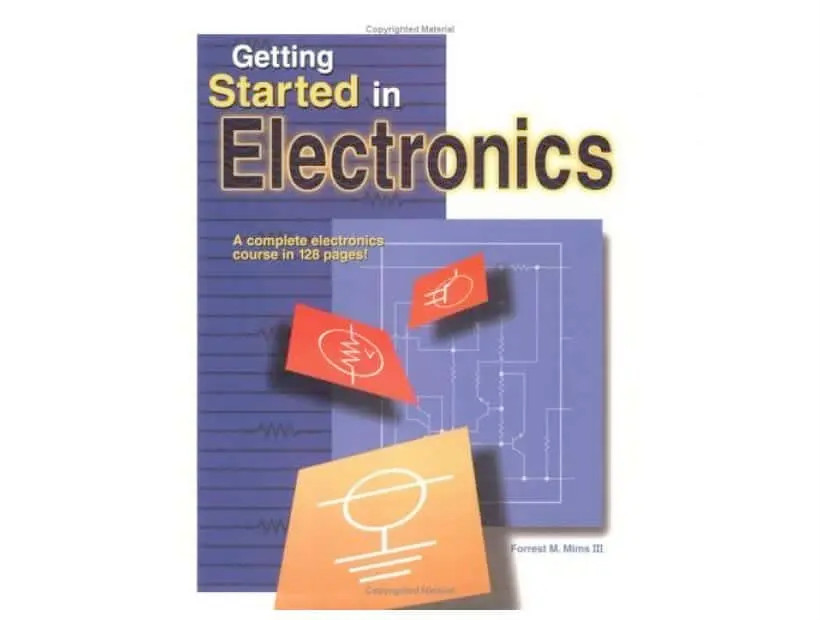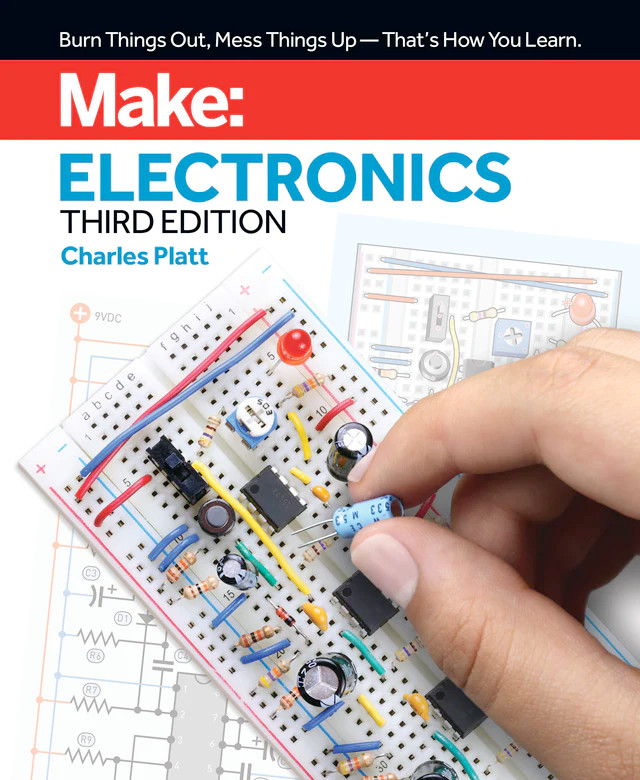I was asked for some (more) resources to learn about electronics, especially those that include some details about analog circuits.
Here are some personal favorites and others that have been recommended.
Dick Smith’s Funway into Electronics
This was my way into electronics, and one of the only books I was ever allowed to take scissors to and cut up!
Each volume features a series of projects which build on each other, but can be constructed in any order; though theory is developed and built upon in a linear fashion from beginning to end.
The instructions, diagrams, and photos are well thought out. It’s clear that they were written for the experimenter that’s working on their own, with little available help at hand.
Each project includes a detailed description of how it works, and how to a
pply the “math rules” of electronics.
There are also general skill and theory sections, as well as some history: both milestones, and the people behind the discoveries and inventions.
Scanned copies of these (sadly) out of print books are available at the Internet Archive.
Volume One
All you needed were the basic electronic components, a block of wood (mdf or plywood), self taping wood screws & washers, and a screw driver – super common around the average Australasian home in the 70s and 80s! No need for a “fancy” breadboard!
I think I prefer this for basic circuits; it’s very easy to tell if things are connected- just tighten the screw a little bit more. It does help to have an adult around with a drill to make starting holes for the screws. (Hmmm… cnc machine + some offcuts… might be an excellent starting point for new experimenters!)
Volume Two
Volume 2 moves to project kits with PCBs, and introduces soldering, ICs, and digital logic.
Volume Three
Focuses on digital ICs.
Getting Started in Electronics
Forest Mims is famous for creating electronics project and reference books with a very hand-written, engineering note-book, feel. Lots of hand-drawn (but very tidy) diagrams, descriptions, and notes.
Available from Solarbotics.
I have had several of his other project books, and would assume the easy going style of those would have a positive effect on a book for beginners.
Make: Electronics
From the creators of Make: magazine, who produce a plethora of guides and introductions to a cornucopia of skills and crafts.
Currently in it’s 3rd edition.




